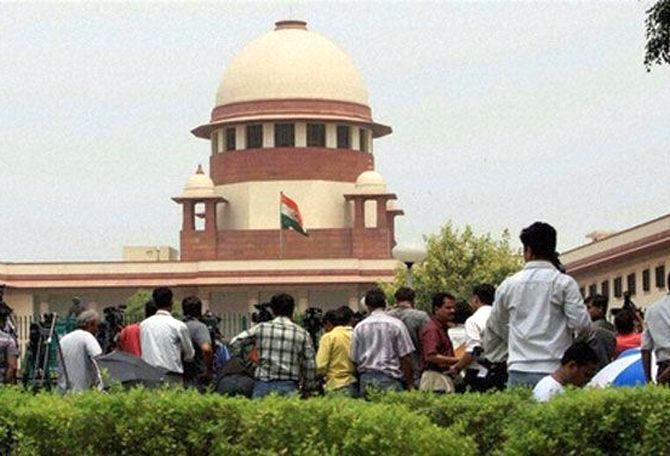
The Supreme Court on Thursday said matrimonial sanctity is an issue but the penal provision on adultery is apparently violative of the right to equality under the Constitution as it treats married men and married women differently.
A five-judge Constitution bench headed by Chief Justice Dipak Misra, which is hearing a petition challenging the constitutional validity of Section 497 of the Indian Penal Code, was also critical of a part of the provision stating that no offence of adultery is made out if a married woman enters into a sexual relationship with a married man with the consent of her husband.
Section 497 of the 158-year-old IPC says: 'Whoever has sexual intercourse with a person who is and whom he knows or has reason to believe to be the wife of another man, without the consent or connivance of that man, such sexual intercourse not amounting to the offence of rape, is guilty of the offence of adultery.'
The bench termed this aspect of Section 497 'manifestly arbitrary' and said it treated married women as 'chattel' on the ground that their relationship with other married persons depends on the 'consent or connivance of her husband'.
"Definitely the matrimonial sanctity aspect is there, but the way the provisions is enacted or made runs counter to Article 14 (Right to equality of the Constitution)," said the bench also comprising Justices R F Nariman, A M Khanwilkar, D Y Chandrachud and Indu Malhotra.
The bench said it would see whether the provision can stand the test of the right to equality on grounds like 'discretion and manifest arbitrariness'.
Advocate Kaleeswaram Raj, appearing for petitioner Joseph Shine, an Indian living in Italy, referred to various facets of Section 497 and said the provision does not apply to a consenting sexual relationship between two unmarried adults and it treats married men and women differently with regard to their prosecution for the offence of adultery.
He said married men can be prosecuted for the offence of adultery but this is not the case with married women and referred to various inconsistencies in the section.
The hearing will now continue after lunch.
The apex court had on Wednesday commenced hearing on pleas seeking quashing of the adultery provision in the IPC on the ground that it only punishes married men for having extra-marital sexual relations with a married woman.









